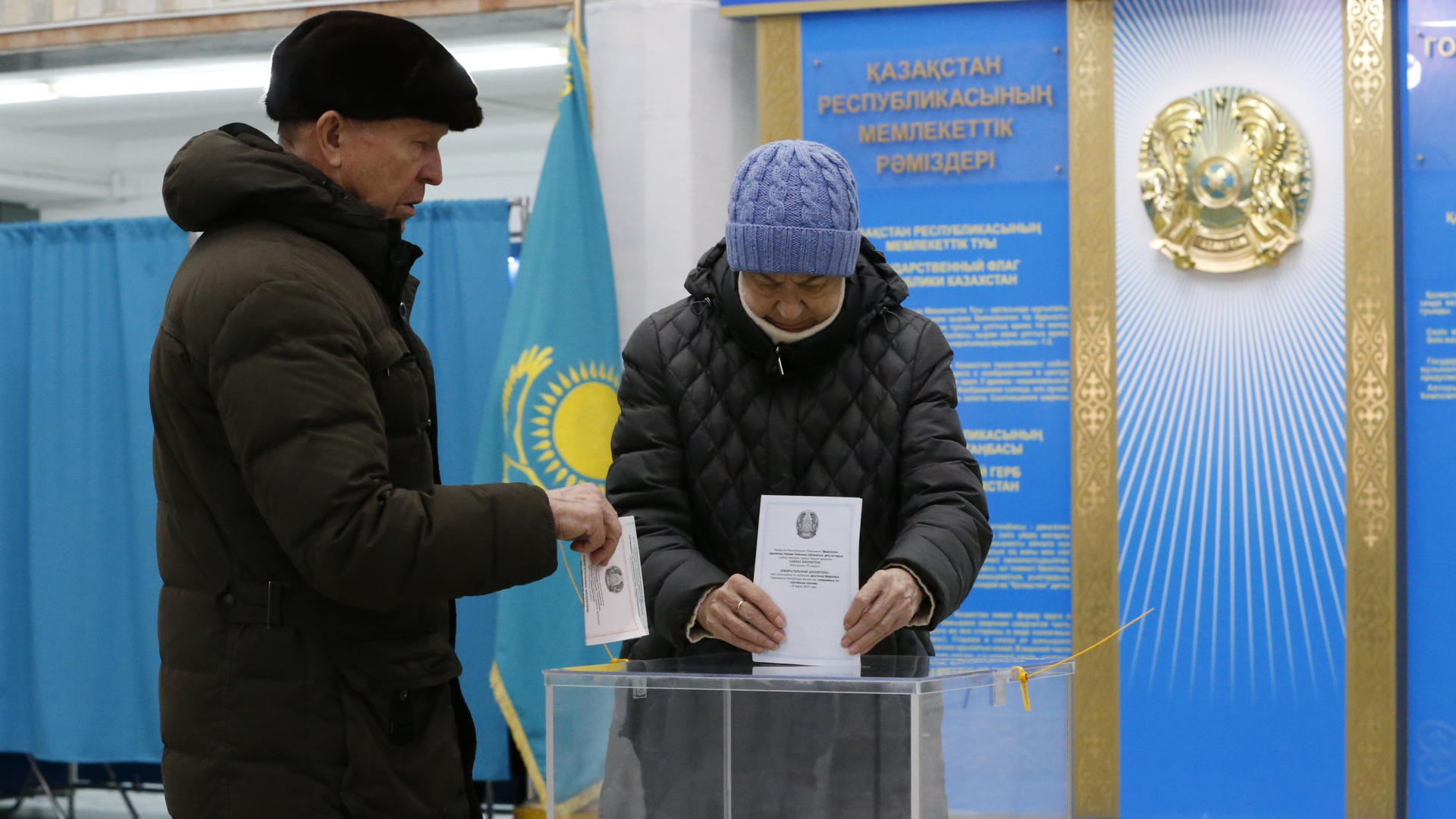Status: 03/19/2023 09:59 AM
For the first time in 20 years, independent candidates are running in Kazakhstan’s parliamentary elections. But real competition with President Tokayev is not allowed, experts criticize.
In Central Asian Kazakhstan, citizens are invited to elect the national parliament as well as regional and local councils. The country, which borders China and Russia, is still under the influence of last year’s protests. President Kasym-Jomart Tokayev suppressed them in many places – also with the help of Russian forces. More than 200 people were killed as a result of the riots. Critics accuse the autocratic Tokayev of primarily wanting to use snap elections to consolidate his power.
The 69-year-old was confirmed in office last November with more than 80 percent in a presidential election that was also filed and then called for fresh parliamentary elections. In the run-up to the vote, he launched several reforms and promised a democratization process. But election observers criticize shortcomings in freedom of the press and freedom of expression. In addition, many opposition parties were banned from participating in the elections.
Five percent hitch and stake
Independent Kazakh political expert Dimash Elchanu also accuses the power apparatus of not allowing any competition: In addition to the ruling Amanat party, the other six parties in office are largely loyal to the government, Elchanu said in an interview with dpa. an agency. “Therefore, I think, parliament will continue to have about 90 percent of the deputies loyal to Tokayev,” he predicted.
However, international election observers are also praising a number of innovations – including lowering the barrier to entering parliament from seven to five percent and allowing non-party candidates. For the first time in nearly 20 years, independent candidates are running. Previously, only members of three pro-government parties sat in the House of Representatives. A quota of 30 percent for women, youth and people with disabilities has also been introduced. All 98 deputies of the Kazakh Chamber of Deputies (Massheli) are now directly elected by the people.
Great police presence
In Almaty, the largest city in Kazakhstan that usually shows the greatest support for the opposition, morning voting was sluggish, according to the Reuters news agency. The police presence on the streets is said to be high.
Casting his vote in Astana early this morning without speaking to the press, Tokayev said the vote would allow him to start implementing his plan to reform the country and ensure a more equitable distribution of its oil wealth.
Polling stations in the former Soviet republic, which have two time zones, open in the morning and close at 8 pm local time (3 pm and 4 pm CET). According to Agence France-Presse, twelve million people have the right to vote.
Prussia connection
The completion of the political transition should also strengthen Tokayev’s position in foreign policy. Despite receiving Moscow’s support during the 2022 riots, he has refused to support Russia’s invasion of Ukraine or to recognize the annexation of some Ukrainian lands.
At the same time, Astana is trying to maintain good relations both with Moscow, its neighbor and main trading partner, and with the West. Corruption and inequality persist in Central Asia’s largest country, and inflation is constraining the purchasing power of its nearly 20 million people.
In January 2022, protests against soaring prices and social injustice in the oil-rich country, which borders Russia and China, degenerate into an unprecedented power struggle among Kazakh elites. Tokayev prevailed and overthrew the still very influential former president, Nursultan Nazarbayev.
Early parliamentary elections in Kazakhstan
Christina Nagel, ARD Moscow, Mar 19, 2023 1:04 p.m.

“Food practitioner. Bacon guru. Infuriatingly humble zombie enthusiast. Total student.”








More Stories
Kyiv: Russian Kursk offensive halted
US Presidential Election: Former US Government Officials Warn Against Donald Trump's Election
Netherlands wants to leave asylum system